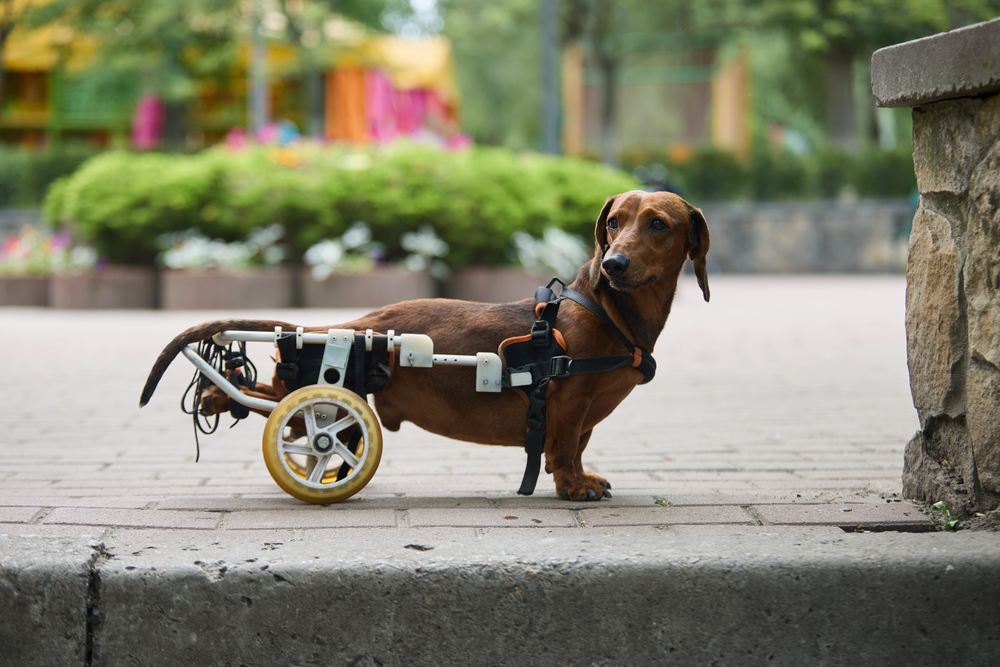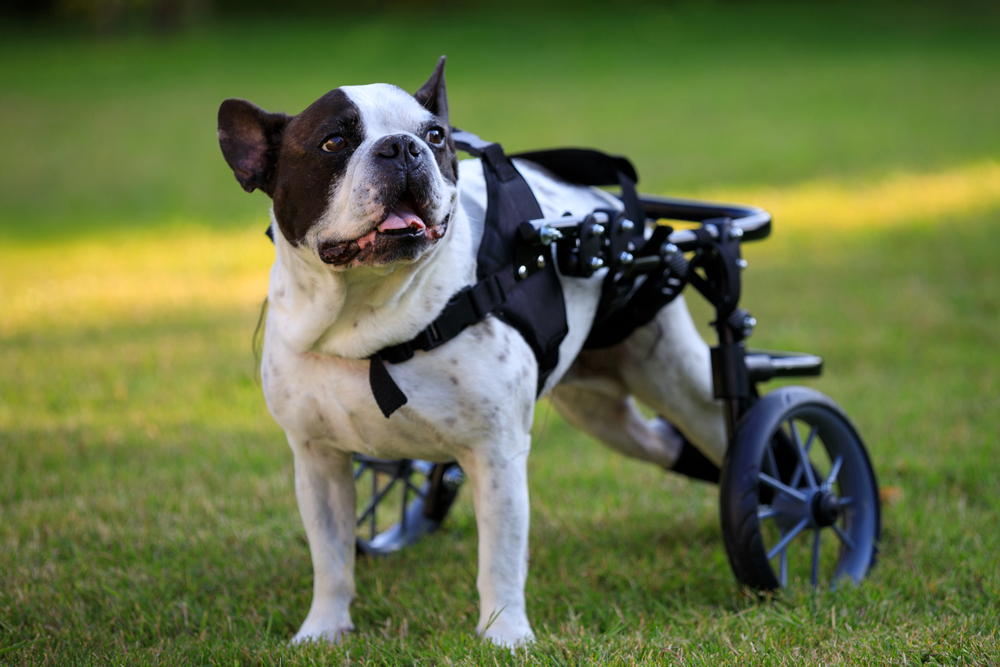For many dog owners, the words “herniated discs and IVDD” strikes fear in their hearts. This debilitating condition, which is often seen in small breeds like Dachshunds, Lhasa Apsos and French bulldogs, can lead to excruciating pain and permanent paralysis.
Until recently, the only methods to treat the condition was with an expensive surgery or many weeks of confinement and rest for the dog. However, thanks to a clever researcher, a new treatment is available.
Professor Nicholas Jeffery, from Texas A&M’s College of Veterinary Medicine & Biomedical Sciences (VMBS) has repurposed an injectable enzyme that dissolves disc material in a dog’s spine.
This groundbreaking new treatment is affordable and available for dogs, now.
A Short Explanation of Herniated Discs and IVDD.
Intervertebral Disc Disease (IVDD) in dogs is a common cause of back pain, hind end weakness and paralysis. An estimated 2 percent of dogs will be affected by IVDD during their lifetime. IVDD is a degenerative condition of the spine where the discs in your dog’s back age faster than they should normally. The discs weaken and can herniate or rupture, causing pain and paralysis.

The Texas A&M Herniated Disc and IVDD Study
The new procedure involves several injections of an enzyme that’s delivered directly into a dog’s back. Dr. Jeffery had previous success with this enzyme when he used it to dissolve and remove scar tissue in the spinal cord of dogs with extreme injuries. He decided to test how it would work with a herniated disc.
He discovered that injecting the enzyme into a herniated disc, worked the same way. It dissolved the disc material and relieved pressure on the spinal cord.
It was a major change from traditional spine surgery, which physically removes a dog’s injured disc.
The original test was performed in January 2023, when Dr. Jeffery tested the enzyme therapy on a dachshund named Oscar. The treatment was successful and led to a larger clinical trial of 54 dogs. The enzyme therapy is now being offered as an alternative to surgery at Texas A&M.
“While we are continuing to collect more cases, there is enough evidence that the treatment works to offer owners a choice between injections and surgery,” Dr. Jeffery said in an interview.
Current Success
The success of this new treatment has been remarkable. The clinical trial has shown that for dogs that have not lost pain sensations in their hind legs, the enzyme injections are as effective as surgery. Moreover, patients typically regain their ability to walk independently in a comparable amount of time.
This new procedure has several other advantages too, with the number one impact being the cost. Enzyme injections are approximately six times less expensive than traditional surgery. This makes the new treatment accessible to more dogs and their families.
In addition, the recovery time is significantly shorter. While surgical patients often require a hospital stay of three to four days followed by extended rest, most dogs receiving the injections can return home the very same day.
Eligibility for the Enzyme Injectable Treatment

Currently the injection treatment is being offered at the Texas A&M Small Animal Teaching Hospital.
Here’s the criteria to be accepted into the program:
- Dogs must be between 2 and 10 years old and weigh less than 33 pounds.
- Dogs must start the treatment within three days of the onset of the herniated disc injury. (Early intervention is crucial for the best outcome.)
The program is being kept small for now, so contact Texas A&M as soon as possible if you think your dog needs treatment.
New Hope
The success of the Texas A&M clinical trial is a major victory. The new procedure offers a less invasive, more affordable, and equally effective alternative to surgery.
It has the potential to save thousands of dogs suffering from IVDD and ruptured discs and to forever change their lives. For more information contact the Texas A&M Small Animal Teaching Hospital – Texas A&M Veterinary Medical Teaching Hospital.





Leave a Reply